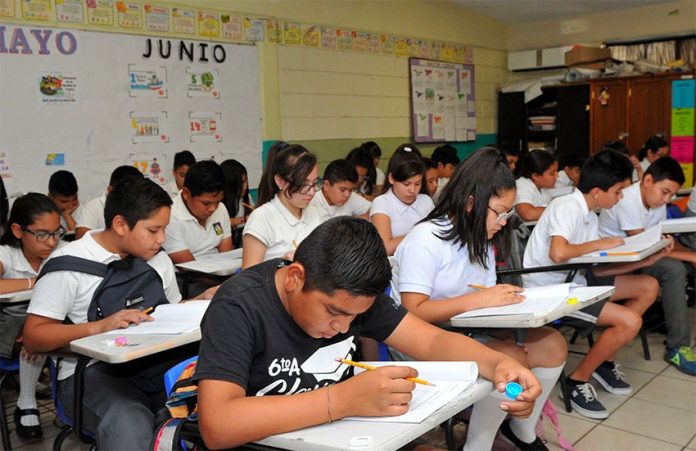Six of every 10 Mexican children can’t do basic arithmetic with decimal numbers and half can’t understand more than the most basic and explicit elements of a short story by the time they complete primary school.
The findings are based on a sample of the results of the most recent standardized PLANEA tests, which more than 1.6 million sixth-grade students took at almost 77,000 primary schools across most of the country in June.
Jorge Hernández, head of the evaluation unit of the National Education System, explained that the 59% of sixth-grade students who were found to have insufficient knowledge in mathematics are able to complete basic additions, subtractions, multiplications and divisions but only with whole numbers.
“If decimals or fractions are introduced, they can’t do the operations . . . They can calculate perimeters and areas of regular shapes but not irregular shapes . . .” he said.
“They can interpret bar graphs but they have difficulties calculating percentages and identifying a mode, they’re even less capable of calculating a mean or median.”
For the 49% of students found wanting in Spanish language skills, comprehension of a short text beyond the most literal level posed challenges, Hernández said.
“[Identifying] the date or the name of a participant in a narrative is all that they can do. They don’t demonstrate understanding that involves connecting related events . . . nor [can they identify] the purpose and meaning of a text or [complete] a comparative assessment of each of the elements [in a story] and the role they play,” he explained.
Since 2015, when the PLANEA tests were first applied, students in Jalisco, Sonora and Yucatán have improved the most in language and communication while those in the first two states have also made the most noteworthy progress in mathematics.
In contrast, the Spanish results of students in Tamaulipas and Veracruz have deteriorated as have the math results in Veracruz, Guerrero and Zacatecas.
For three states there are no tests results. The dissident CNTE teachers’ union, which has engaged in many violent protests in opposition to education reforms and evaluations, prevented the tests from being conducted in Oaxaca, Chiapas and Michoacán.
PLANEA tests were introduced as part of those reforms, which also initiated the evaluation of teachers as well as students. But the new government has vowed to abolish them.
President-elect López Obrador repeated his promise to kill the reform package and teacher evaluations during a meeting this week with the national teachers’ union, the SNTE. He said there would be teacher training rather than evaluation, calling the reforms offensive and humiliating to teachers, who were blamed for problems in the education sector.
The SNTE had previously supported the reforms and as of August had been paid as much as 3 billion pesos (US $148 million) to promote them.
But the union has changed its position since López Obrador was elected president on July 1.
Source: El Universal (sp)
